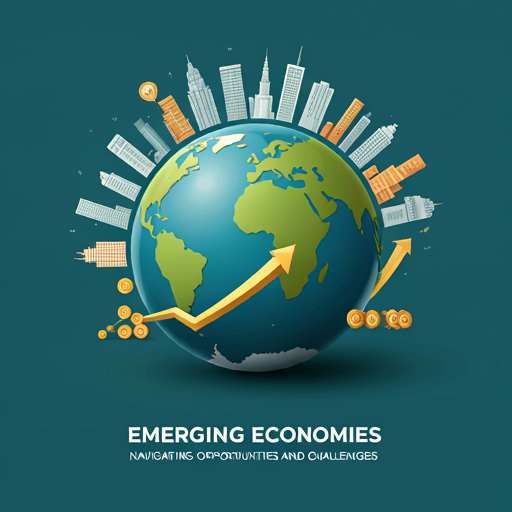Introduction to Emerging Economies
Definition and Characteristics
Emerging economies are nations experiencing rapid growth and industrialization. These countries often exhibit unique characteristics that differentiate them from developed markets. Key features include a rising middle class, increasing foreign direct investment, and a shift towards digital financial solutions.
For instance, many emerging economies are adopting mobile payment systems, enhancing financial inclusion. This trend is significant as it opens new avenues for investment.
Additionally, these markets often face challenges such as political instability and regulatory hurdles. Investors must navigate these complexities carefully.
Understanding these dynamics is crucial for making informed investment decisions. Knowledge is power on finance.
Importance in the Global Economy
Emerging economies play a crucial role inward the global economy by driving growth and innovation. Their expanding markets attract significant foreign investment. This influx of capital fosters job creation and technological advancement.
Moreover, these economies contribute to global supply chains, enhancing trade dynamics. He recognizes the potential for diversification in investment portfolios.
As they develop, emerging economies can influence global economic policies. This shift is noteworthy for investors seeking new opportunities.
Current Trends in Cryptocurrency Adoption
Growth of Blockchain Technology
The growth of blockchain technology is reshaping financial systems globally. Its decentralized nature enhances security and transparency in transactions. This innovation reduces the need for intermediaries, lowering costs.
Many industries are exploring blockchain applications beyond cryptocurrency. He sees potential in supply chain management and healthcare.
As adoption increases, regulatory frameworks are evolving. This development is crucial for mainstream acceptance. Investors should stay informed about these trends.
Increased Interest from Retail and Institutional Investors
Increased interest from retail and institutional investors is driving cryptocurrency market dynamics. This surge is fueled by the potential for high returns and portfolio diversification. Many investors are now viewing cryptocurrencies as a hedge against inflation.
Furthermore, institutional adoption is legitimizing the asset class. He notes that major financial firms are entering the space.
As a result, regulatory scrutiny is intensifying. This scrutiny is essential for market stability. Investors must remain vigilant and informed.
Opportunities for Investors in Emerging Markets
Access to Untapped Markets
Access to untapped markets presents significant opportunities for investors in emerging economies. These markets often exhibit rapid growth potential and increasing consumer demand. Investors can benefit from early entry into sectors like technology and renewable energy.
Additionally, local partnerships can enhance market penetration. He believes collaboration is key to success.
Investors should also consider the demographic trends driving consumption. Young populations are often more open to innovation. This shift is noteworthy for strategic planning.
Potential for High Returns
The potential for high returns in emerging markets is significant due to rapid economic growth. These markets often experience higher GDP growth rates compared to developed economies. This growth can lead to substantial capital appreciation for investors.
Moreover, sectors such as technology and infrastructure are expanding quickly. He emphasizes the importance of sector selection.
Investors should also consider the increasing consumer base in these regions. A growing middle class drives demand for various products. This trend is crucial for long-term investment strategies.
Challenges Faced by Investors
Regulatory Uncertainty
Regulatory uncertainty poses significant challenges for investors in emerging markets. Frequent changes in laws can create an unpredictable environment. This unpredictability complicates long-term investment planning.
Additionally, varying regulatory frameworks across countries can hinder market entry. He notes that compliance costs can be substantial.
Investors must also navigate potential government interventions. Such actions can impacf market stability and investor confidence. Awareness is essential for effective risk management.
Market Volatility and Risks
Market volatility and risks are significant concerns for investors in emerging markets. Fluctuations in currency and commodity prices can lead to unpredictable returns. This unpredictability complicates investment strategies.
Moreover, geopolitical tensions can exacerbate market instability. He believes that awareness is crucial.
Investors must also consider liquidity risks. Limited market depth can hinder asset sales. This situation can lead to unfavorable pricing.
Case Studies of Successful Investments
Notable Projects in Emerging Economies
Notable projects in emerging economies illustrate successful investment strategies. For instance, renewable energy initiatives in India have attracted significant foreign capital. These projects demonstrate the potential for sustainable growth.
Additionally, technology startups in Africa are gaining traction. He notes that innovation drives economic development.
Investors have also seen success in agricultural ventures in Southeast Asia. These projects enhance food security and profitability. This trend is promising for future investments.
Lessons Learned from Past Investments
Lessons learned from past investments highlight the importance of due diligence. Thorough research can mitigate risks significantly. Investors should analyze market conditions and regulatory environments carefully.
Additionally, diversification across sectors can enhance stability. He believes this strategy reduces exposure to volatility.
Successful investments often stem from understanding local dynamics. Knowledge of cultural and economic factors is essential. This insight can lead to better decision-making.
Future Outlook for Cryptocurrency in Emerging Economies
Predicted Trends and Developments
Predicted trends indicate increased cryptocurrency adoption in emerging economies. This growth is driven by technological advancements and financial inclusion. Many individuals are turning to digital currencies for transactions.
Moreover, regulatory frameworks are expected to evolve. He anticipates clearer guidelines will enhance investor confidence.
Additionally, decentralized finance (DeFi) platforms are gaining traction. These innovations provide new investment opportunities. This shift is noteworthy for future financial landscapes.
Strategies for Navigating the Landscape
Strategies for navigating the cryptocurrency landscape include thorough market analysis. Understanding local regulations is essential for compliance. Investors should also diversify their portfolios across various assets.
Additionally, leveraging technology can enhance trading efficiency. He believes that data analytics is crucial.
Engaging with local communities can provide valuable insights. This approach fosters trust and collaboration. Staying informed about global trends is vital for success.
